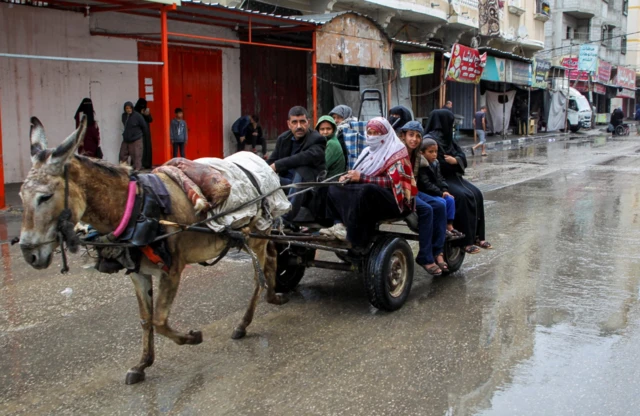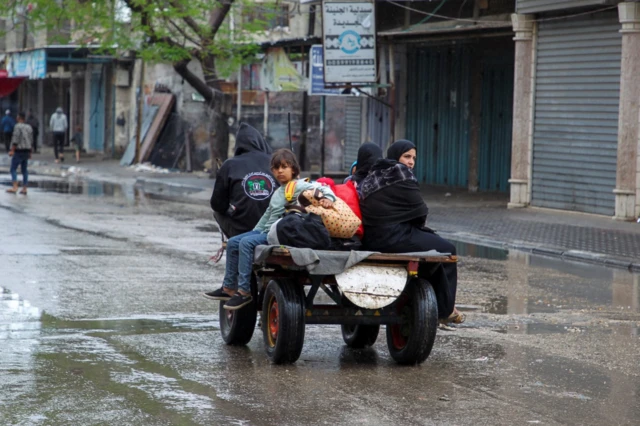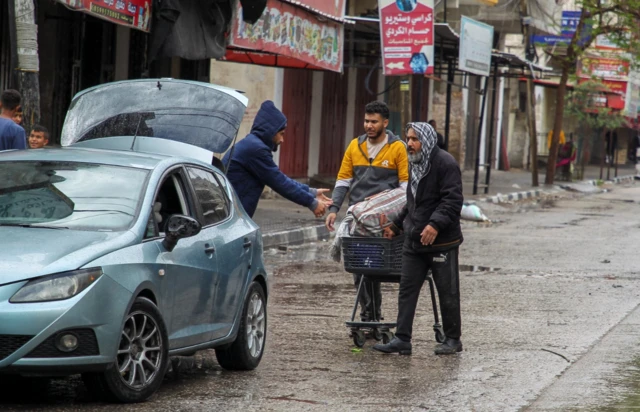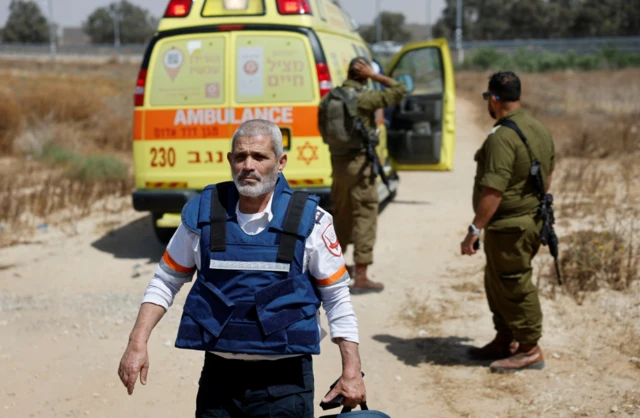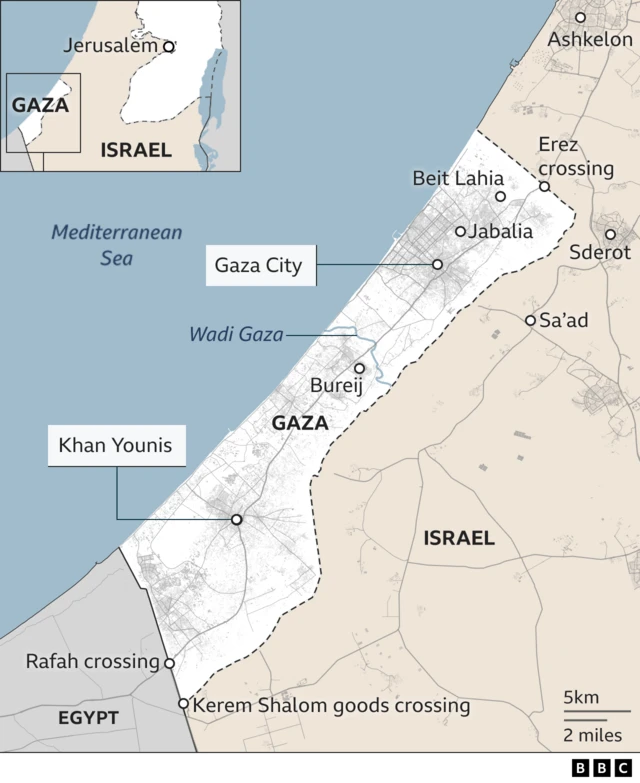Family of hostages 'very much afraid' of Rafah offensivepublished at 08:39 BST 6 May 2024
In Israel, some families of hostages have been expressing their fear about what a Rafah operation might mean for their loved ones.
Gil Dickman's aunt was killed during the 7 October attacks by Hamas and had two cousins taken hostage. One was released and the other remains captive.
"Now unfortunately we're very much afraid as families of hostages about what's going to happen," he told BBC's Newsday programme.
"We're very much afraid that the IDF entering Rafah will risk the lives not only of innocent people, not only of soldiers but also of some hostages who might be at risk because of the attack on Rafah."
The war began after waves of Hamas gunmen stormed across Gaza's border into Israel on 7 October, killing about 1,200 people and taking more than 250 hostages. The group is proscribed as a terrorist organisation by many Western countries.
During the subsequent Israeli military campaign in Gaza, more than 34,600 Palestinians have been killed and over 77,900 wounded, according to figures from the territory's Hamas-run health ministry.

